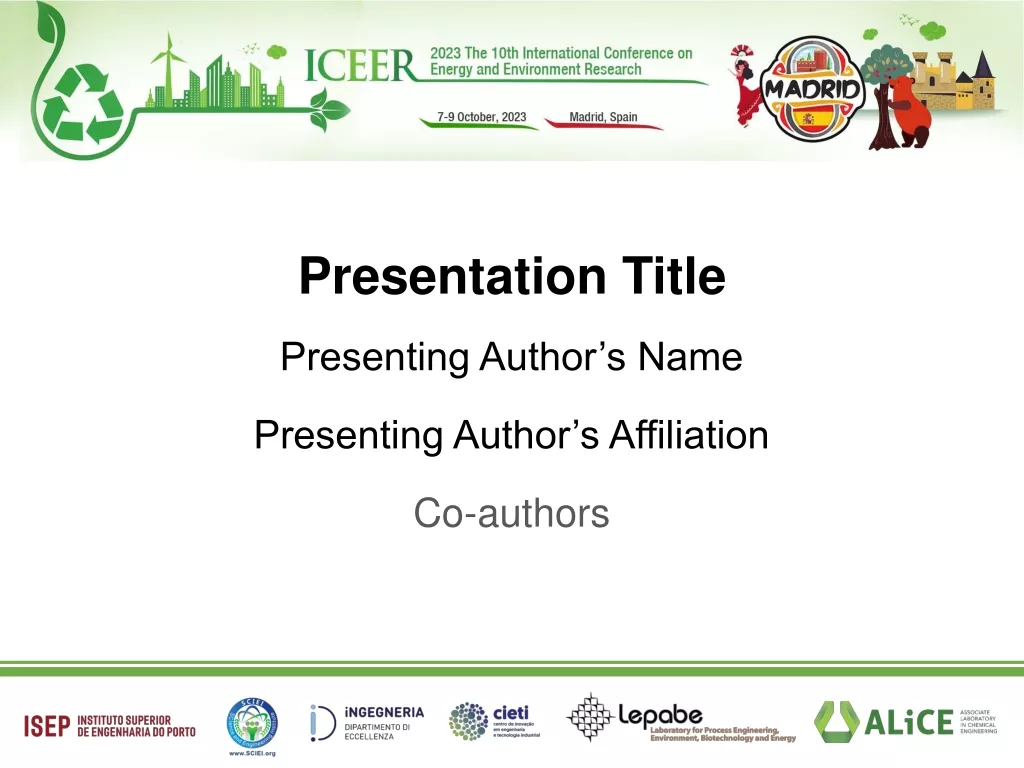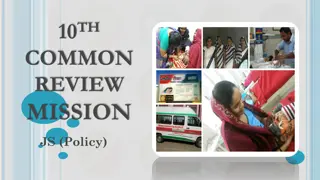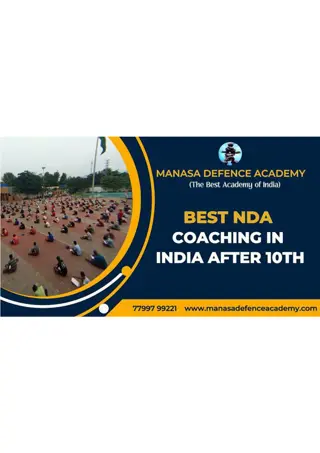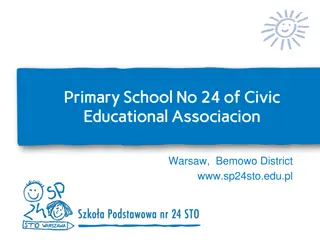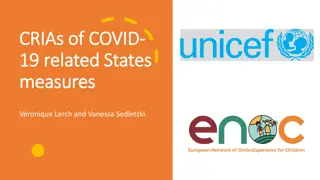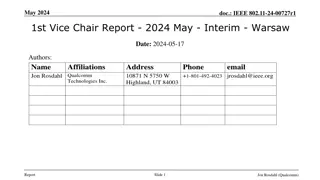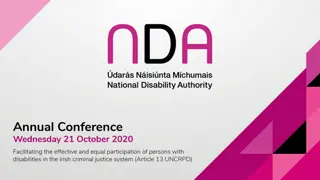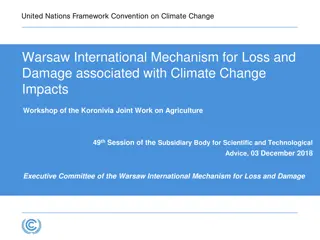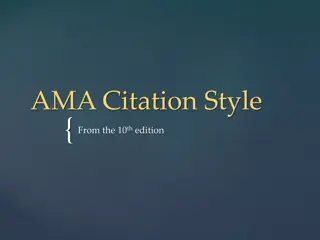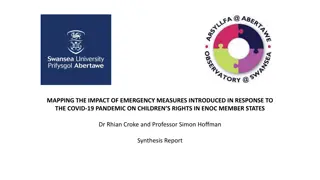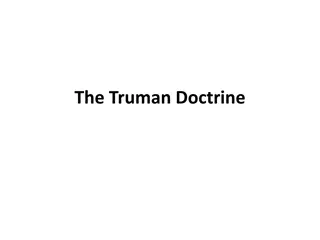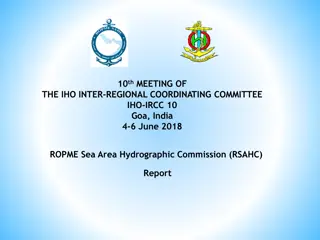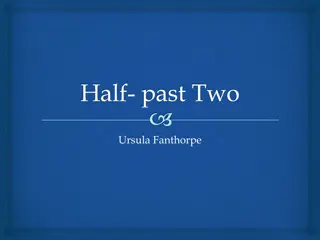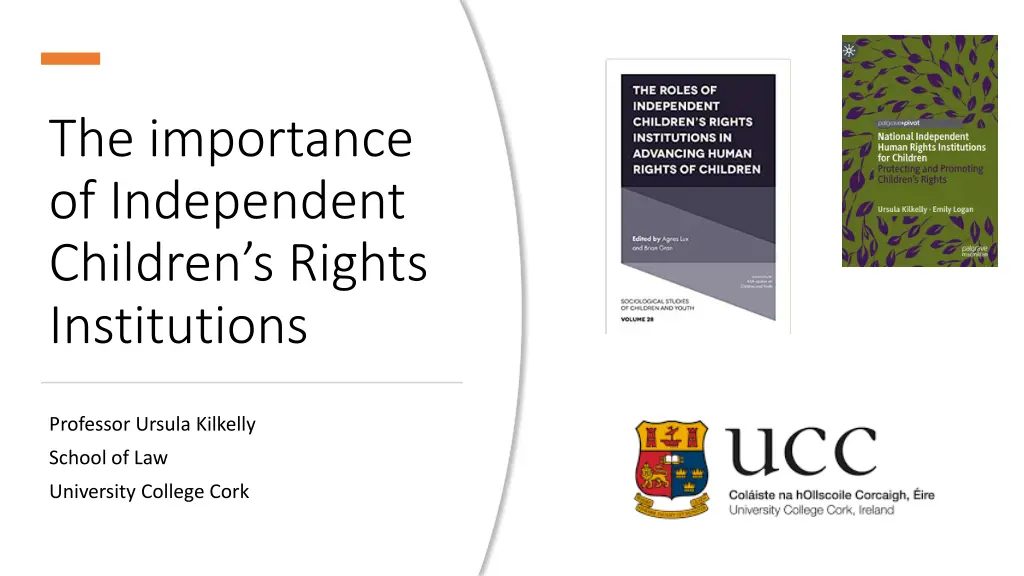
Importance of Independent Children's Rights Institutions & Paris Principles
Explore the significance of independent children's rights institutions and the Paris Principles in safeguarding and promoting children's rights globally. Learn about key approaches such as advocacy, awareness raising, and complaints to maximize the potential of these institutions in protecting children. Discover how the UNCRC serves as a starting point, the role of National Human Rights Institutions (NHRIs), and the essential standards outlined in General Comment No. 2.
Uploaded on | 1 Views
Download Presentation

Please find below an Image/Link to download the presentation.
The content on the website is provided AS IS for your information and personal use only. It may not be sold, licensed, or shared on other websites without obtaining consent from the author. If you encounter any issues during the download, it is possible that the publisher has removed the file from their server.
You are allowed to download the files provided on this website for personal or commercial use, subject to the condition that they are used lawfully. All files are the property of their respective owners.
The content on the website is provided AS IS for your information and personal use only. It may not be sold, licensed, or shared on other websites without obtaining consent from the author.
E N D
Presentation Transcript
The importance of Independent Children s Rights Institutions Professor Ursula Kilkelly School of Law University College Cork
Aims Set out the standards governing national independent human rights institutions for children Paris Principles General Comment No 2 of the Committee on the Rights of the Child Strengths and weaknesses of ICRIs Highlight key approaches of Advocacy Awareness raising Complaints Maximising potential of ICRIs to protect/promote children s rights Strategy - full use of legislative powers and resources Use of soft power
Where to begin: the UNCRC Where to begin: the UNCRC UNCRC the starting point Article 4, the duty to take all appropriate measures for the implementation of the Convention ICRI key to this process The bridge between the international and the national Committee on the Rights of the Child Adopted GC No 2 (Role of NHRIs ) in 2002 Recommended introduction of NHRIs in GC No 5 (2003) consistently raises the existence, resourcing and standing of such bodies during the state party dialogue
The Paris Principles, a set of minimum standards Rooted in the UN human rights architecture, their importance to the implementation, enforcement and protection of human rights was formally recognised in Vienna Declaration, 1993 At a minimum, NHRIs must 1. Be based on human rights norms and as broad as possible 2. Enjoy a level of autonomy from government, including financially 3. Have independence guaranteed by statute 4. Enjoy adequate resources and infrastructure to fulfil mandate 5. Have sufficient powers to fulfil function 6. Have composition and appointment to enable pluralistic representation of those involved in human rights protection
General Comment No 2 Mandate/Scope every state needs an independent human rights institution with responsibility for promoting and protecting children s rights (para 7) Whatever its form must be able to independently and effectively monitor, promote and protect children s rights if possible be constitutionally entrenched or at least legislatively mandated (para 8) Mandate as broad as possible CRC and Protocols Accessibility to children key in line with Article 2 and Article 12 - institutions must have direct contact with children Independence and resourcing for adequate functioning (para 10).
General Comment No 2 - Powers Must have the power to consider complaints from children and Carry out investigations and Litigate and make third party interventions on a child s behalf Also should undertake the following activities: undertake investigations and conduct inquiries into children s rights, prepare opinions and recommendations at the request of authorities and on their own volition, keep law and policy under review from a children s rights perspective promote the harmonisation with the Convention of law, regulation and practice Scope: reference to public and private entities, reporting to Parliament.
Paris Principles and GC No 2 compared Strong coherence between Paris Principles and GC No 2 Adaptation - the different legal status of children and their best interests, evolving capacities and right to express views must require an adaptation in design and orientation (Lansdowne, 2020) Child specific institution where resources are limited development of a broad-based NHRI that includes a specific focus on children is likely to constitute the best approach (GC No 2, para 6) What is key is that the institution can independently and effectively, monitor, promote and protect children s rights ; the mainstreaming of the promotion and protection of children s rights should be essential; and all human rights institutions should work closely together to this end (GC No 2, para 7) Complaints - GC No 2 went beyond Paris Principles individual complaints mechanisms should be embedded
ICRIs diversity in form and approach National human rights institutions for children are diverse and take many different forms with varying powers, remit, resourcing and standing (Thomas et al., 2011). Commissioner for Children, Ombud/sperson for Children, Children office or desk in an NHRI modified to fit national frameworks (Seneviratne) Some have a complaints function (reactive), others focus on awareness raising and advocacy (proactive) Some have an explicit rights mandate, others focus on child welfare BUT, what is most important is how mandate and resources are used in practice, strategy trumps form!
Strengths of ICRIs Weaknesses of ICRIs Many have gaps in legislative mandate Engaging with children directly, speak authentically Limitations in resourcing amount and control Enjoy strong public support Susceptible to merger Linked to the strong standing of the CRC State run appointment process can create vulnerabilities for the office holder Quasi judicial nature of complaints functions can be powerful
Advocacy Advocacy CRC (GC No 5) links advocacy to the enforcement of children s rights Critical that this work is informed by children s views and experiences and by children themselves (See GC No 2 on advocacy panels) Forms include: influencing law and policy, through on volition or requested reviews and recommendations Tracking legal developments over time Recommending law and policy reform based on children s experiences and complaints Media critical to the success of this activity BUT potentially endless and time consuming (who decides?). Important to review its effectiveness and to be strategic in this work eg parliamentary child impact?
Awareness Raising Awareness Raising CRC duty to make provisions widely known to children and adults GC No 5: Link between awareness and implementation of the CRC Participation of children in this activity is key Ireland s example Big Ballot based on academic research to identify themes, a national campaign of engagement to raise awareness and a vote so children can identify the strategic priorities of the office Must be led by children themselves who does this, really?
Complaints Complaints Not all ICRIs have this function, and it is not risk free Can overwhelm an ICRI, with limited resources Should be used strategically, linked to other functions (advocacy, campaigns, education) Without binding recommendations or decisions, can be toothless Used with rigour and fairness, it can improve practice Beyond substantive areas, must ask questions of where , how and why children s rights are being breached Who complains? Should children decide?
ICRIs ICRIs maximising potential maximising potential All ICRIs are different, with varying powers, remits and resources Every jurisdiction also has different systems, resources, cultures and values While minimum standards are clear - there is no one effective model, no single best way Powerful, independent and well resourced offices can be highly effective BUT Integrity, credibility and authenticity (with regard to children s views and experiences) are critical Together with leadership, these grant soft power that can go much further in the promotion and protection of children s rights SO What powers do you have and how do you use them?
Thank you for listening! Professor Ursula Kilkelly School of Law, University College Cork Email: u.kilkelly@ucc.ie Twitter: @ukilkelly


